Sustainability in the Curriculum at UM
The addition of a SUST Class Attribute was adopted by the Curriculum Committee in 2018.
The SUST attribute benefits are:
- For departments with Sustainability focused minors, majors, programs or certificates, or for any school interested, to easily download a list of courses to pick electives from.
Click HERE for a full list of programs, minors, majors and certificates focused on Sustainable Development at the U
- Browse the list of Courses with a SUST atttribute
- FALL 2024: Applicants to the Sustainability Scholar Program are required to take 9 credits of SUST classes. The UM Sustainability Scholar Program is a collaboration between the Office of Sustainability, the Miami Herbert Business School, the Abess Center for Ecosystem Science and Policy, and the Department of Geography and Sustainable Development, with support of the Student Government ECO Agency. The program’s goal is for students to further incorporate sustainability into their curriculum and cultivate leadership skills in promoting sustainability on campus. Learn more
For faculty who are interested in launching a class with a SUST attribute or to modify an existing syllabus to qualify for the SUST attribute, our group of faculty mentors have published this
GUIDE TO THE SUSTAINABILITY ATTRIBUTE
Sustainability in the Curriculum Coffee Talk
We invite faculty from all schools and colleges to join our Sustainability in the Curriculum group, exchange ideas with colleagues and learn about the Sustainability Scholar program.
Meet in person at the Richter Library Flex Space B on the 1st fl. REGISTER NOW

Our Sustainability in the Curriculum Working Group is here to help you, feel free to contact your school or department's faculty:
| School - Dpt |
Professor |
email |
| Ecosystem, Science and Policy |
Curley, Cali |
calicurley@miami.edu |
| Ecosystem, Science and Policy |
Callwood, Karlisa Alicia |
kcallwood@earth.miami.edu |
| Ecosystem, Science and Policy |
Pinto, Theresa |
theresajpinto@miami.edu |
| Ecosystem, Science and Policy |
Broad, Kenneth |
kbroad@miami.edu |
| Climate Resilience Academy |
Berkowitz, Michael David |
mdb308@miami.edu |
| Climate Resilience Academy |
Posner, Jennifer |
jposner@miami.edu |
| School of Nursing and Health Studies |
Falcon, Ashley L. |
afalcon1@miami.edu |
| School of Nursing and Health Studies |
Lovan, Padideh Haddadian |
phl31@med.miami.edu |
| Miami Herbert Business School |
Hicks, Daniel |
dhicks@miami.edu |
| Miami Herbert Business School |
Kelly, David L |
dkelly@bus.miami.edu |
| School of Architecture |
Lombard, Joanna L. |
jlombard@miami.edu |
| School of Architecture |
Hector, Denis H |
dhector@miami.edu |
| School of Architecture |
Chao, Sonia Raquel |
schao@miami.edu |
| Geography and Sust. Dvlpmt |
Cardoso da Silva, Jose Maria |
jcsilva@miami.edu |
| Geography and Sust. Dvlpmt |
Roy, Shouraseni Sen |
ssr@miami.edu |
| Geography and Sust. Dvlpmt |
Imelda Moise |
moise@miami.edu |
| Geography and Sust. Dvlpmt |
Stoler, Justin B |
stoler@miami.edu |
| Geography and Sust. Dvlpmt |
Praharaj, Sarbeswar |
spraharaj@miami.edu |
| Geography and Sust. Dvlpmt |
Grant, Richard J. |
rgrant@miami.edu |
| History |
Bachin, Robin Faith |
rbachin@miami.edu |
| Education and Psychological Studies |
Evans, Scotney D. |
s.evans4@miami.edu |
| Kinesiology and Sport Sciences |
McNary, Erin L. |
elm134@miami.edu |
| Kinesiology and Sport Sciences |
Resnick, Paul S |
p.resnick@miami.edu |
| School of Communication |
Ali Habashi |
ahabashi@miami.edu
|
| School of Communication |
Treaster, Joseph |
treaster@miami.edu
|
| School of Communication |
Martens, Sannne |
sxm2632@miami.edu
|
| School of Communication |
Garcia, Neri |
nlg18@miami.edu
|
| Law School |
Owley, Jessica |
jowley@law.miami.edu |
| Law School |
Fleming, Abigail L |
afleming@law.miami.edu |
| International Studies |
Weisskoff, Richard |
rweisskoff@miami.edu |
| International Studies |
Moulioukova, Dina |
d.moulioukova@miami.edu |
| Biology |
Sealey, Kathleen Sullivan |
ksealey@miami.edu |
| Biology |
Feeley, Kenneth |
kjfeeley@miami.edu |
| College of Engineering |
Andiroglu, Esber |
e.andiroglu@miami.edu |
| College of Engineering |
Trussoni, Matthew Jacob |
trussoni@miami.edu |
| College of Engineering |
De Caso y Basalo, Francisco Jose |
fdecaso@miami.edu |
| College of Engineering |
Moghaddass, Ramin |
ramin@miami.edu |
| Env. and Public Health - MSOM |
Kumar, Naresh |
NKumar@med.miami.edu |
| Computer Science College of Engineering |
Ramamoorthi, Lokesh Saravanan |
lokeshr@umiami.edu |
| Institute for Data Science and Computing |
Tim Norris |
tnorris@miami.edu |
| Writing Studies |
Lauren, Ben |
blauren@miami.edu |
| Writing Studies |
McGrath Moreira, Kimberly |
kmcgrath@miami.edu |
| Writing Studies |
Torres, Monica |
mmt93@miami.edu |
| Anthropology |
Geller, Pamela |
p.geller@miami.edu |
| Marine Ecosystems & Society |
Jacquet, Jennifer |
jjacquet@miami.edu |
| Marine Ecosystems & Society |
Dell, Claire |
cdell@miami.edu |
| College of Engineering |
Ural, Derin |
dnu3@miami.edu |
| College of Engineering |
Aktas, Bilge Merve |
bma171@miami.edu |
| College of Engineering |
Suraneni, Prannoy |
suranenip@miami.edu |
| College of Engineering |
Solo-Gabriele, Helena M |
hmsolo@miami.edu |
| College of Engineering |
Luo, Chao |
cxl1763@miami.edu |
| Geography and Sust. Dvlpmt |
Praharaj, Sarbeswar |
spraharaj@miami.edu |
| Geography and Sust. Dvlpmt |
Grant, Richard J. |
rgrant@miami.edu |
| Biomedical Engineering |
Rajguru, Suhrud M |
s.rajguru@miami.edu |
| Atmospheric Science |
Amy C Clement |
aclement@miami.edu |
| Art and Art History |
Billie Lynn |
blynn@miami.edu |
| Art and Art History |
Cooke, Patricia Lorraine |
plc16@miami.edu |
| Art and Art History |
Efrein, Jenna |
j.efrein@miami.edu |
Syllabi Case Studies
- Business: Law and Business: Beyond Environmental Compliance - Syllabus
- Law: Law and Sustainable Society course - Syllabus
- Nursing: Clinical Nursing, Developing Families - Syllabus
- Public Health: Megacities and Slums: Global Health and Sustainable Development - Syllabus
- Medicine: Sustainability Concepts in Physical Therapy Education and Clinical Care - Syllabus
- Arts and Science: The Past, Present, and Future of Food and Population - Syllabus
For more case studies, visit the Piedmont Project at Emory
More Resources
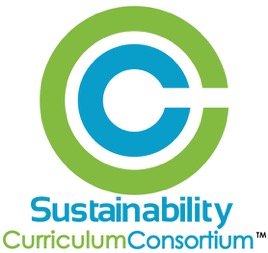
Become a member of the Sustainability Curriculum COnsortium and get access to even more resources: http://curriculumforsustainability.org/
AASHE Sustainability in the Curriculum Workshops
AASHE - Center for Sustainability across the Curriculum
Piedmont Project at Emory
Vanderbilt - Teaching Sustainability
SDG Academy
"Sustainability at the U" presentation in your classroom
Invite Green U for a 20 min presentation in your class, and get your students involved in the multiple sustainability projects our campus offer: from our sustainable food initiatives, our LEED certified buildings, to our various renewable energy projects, our tree canopy or our waste minimization strategy, our multidisciplinary approach is fit for any class. Contact greenu@miami.edu to schedule a presentation in your class (available on our 3 campuses).
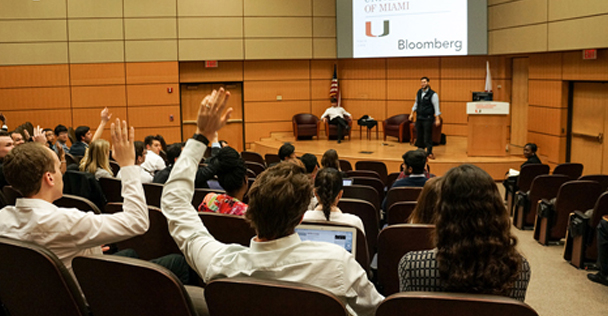
Green U tour of the Coral Gables campus
No matter what class you're teaching this semester, our Green U tour will inspire your students. They will have a chance to learn, get involved, and see our campus like never before. You can tailor the tour according to your class need: Start at Stanford Circle in front of our ECO tree, a symbol of students commitment to nature preservation and the environment [...] Stop by the LEED Platinum Frost Building and learn about its green features. Schedule your next tour now with greenu@miami.edu
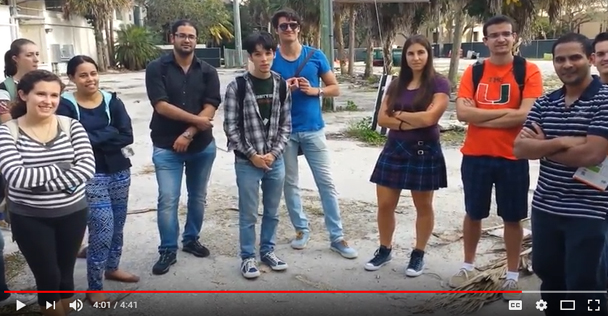
********
Research Guide | Urban Sustainability & Resilience
The knowledge and resources for environment-driven urban and architectural design is at your fingertips. This research guide gathers important resources and information on topics encompassed by sustainable design, resilient design, and climate and the environment Co-curated by Gilda B. Santana, Associate Librarian Professor and Head of the Architecture Research Center, (ARC) University of Miami Libraries and Sonia R. Chao, Co-Director of MPSUSR, Director of the Center for Urban & Community Design (CUCD), and Faculty Lead in climate and environmental issues for the University of Miami Institute for Advanced Study of the Americas (UMIA). Learn more here.
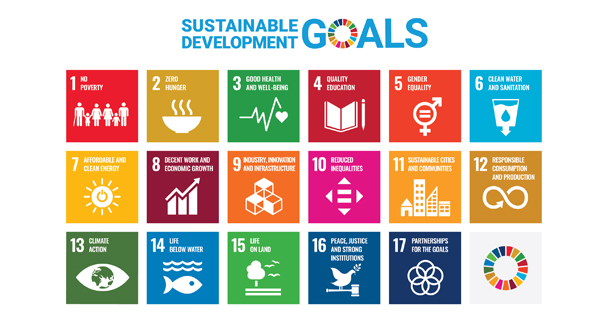
UM Libraries:
Sustainable Development Goals research guide
The Sustainable Development Goals are diverse and apply to many disciplines. This new SDG resource from UM Libraries is meant to serve faculty and students, and can address specific class assignments. Feel free to give your feedback and ideas by contacting Terri Robar.
| Sustainability in the Curriculum workshops |
 |
|
How Did I Green My Syllabus?
Over the last few years, the University has increased its offerings of graduate and undergraduate programs focused on sustainable development. We invite you to join a group of colleagues from various UM departments as they share their personal journey in Academia, and how they decided to integrate sustainability in their syllabus. Join our panelists, Prof. David Kelly (Miami Herbert Business School), Prof. Lokesh Ramamoorthi (Electrical and Computer Engineering), Prof. Erin McNary (Sports Administration), and Prof. Justin Stoler (Geography) on February 26 from 12-1 p.m. Recording available here.
|
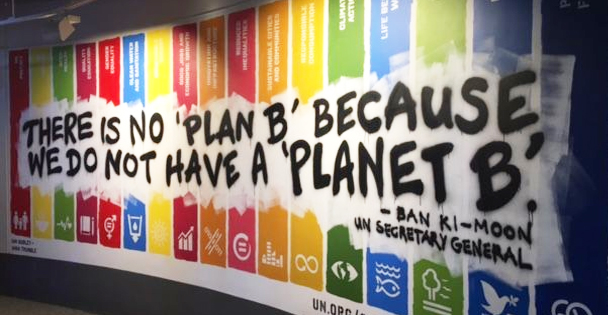 |
|
Sustainable Development Panel
Over the last few years, the University of Miami has increased its offerings of graduate and undergraduate programs focused on sustainable development. We invite you to hear from the Sustainable Development Panel, a unique panel designed for faculty interested in addressing global sustainability challenges in the classroom. Colleagues from various UM departments will share their experiences in hopes of inspiring others to include sustainability in their syllabi. Join our panelists, Prof. Hicks (Miami Herbert Business School), Prof. Maranto (Ecosystem Science and Policy), Prof. Evans (Educational and Psychological Studies), and Prof. Fernandez (International Studies). Here is the recording of the event
|
|
Sustainability in the Curriculum Workshop
Requirements for UM faculty:
- Develop a syllabus for a new course or a course module that incorporates sustainability or environmental issues appropriate to your field. Please, once you rsvp, send us the syllabus you think about enhancing with SDGs and which goal(s) you want to address in your course, as well as which learning outcome(s) would likely be included in your class description (greenu@miami.edu)
- You will be supported in this endeavour by our group of sustainability in the curriculum faculty experts
- You will be invited to participate in a quarterly discussion session to share experiences and best practices.
|
|
csoss archives
|
+++++++++++++++++++++++++++++++++++++++++++++++++++++++++++++++
STARS TIER 1 vs TIER 2 COURSES
Sustainability course offerings include A) sustainability-focused courses and B) sustainability-inclusive courses:
A. Sustainability-focused courses (a.k.a. “sustainability courses”)
To count as sustainability-focused, the course title or description must indicate a primary and explicit focus on sustainability. This includes:
- Foundational courses with a primary and explicit focus on sustainability (e.g., Introduction to Sustainability, Sustainable Development, Sustainability Science).
- Courses with a primary and explicit focus on the application of sustainability within a field (e.g., Architecture for Sustainability, Green Chemistry, Sustainable Agriculture, Sustainable Business). As sustainability is an interdisciplinary topic, such courses generally incorporate insights from multiple disciplines.
- Courses with a primary and explicit focus on a major sustainability challenge (e.g., Climate Change Science, Environmental Justice, Global Poverty and Development, Renewable Energy Policy). The focus of such courses might be on providing knowledge and understanding of the problems and/or the tools for solving them.
The course title or description does not have to use the term “sustainability” to count as sustainability- focused if the primary and explicit focus of the course is on the interdependence of ecological and social/economic systems or a major sustainability challenge. If the course title and description do not unequivocally indicate such a focus, but it is evident from the course description or syllabus that the course incorporates sustainability challenges, issues, and concepts in a prominent way, the course may qualify as sustainability-inclusive (see below).
B. Sustainability-inclusive courses (a.k.a. “sustainability-related courses”)
Courses that are not explicitly focused on sustainability may contribute towards scoring if sustainability has clearly been incorporated into course content. To count as sustainability-inclusive, the course description or rationale provided in the course inventory must indicate that the course incorporates a unit or module on sustainability or a sustainability challenge, includes one or more sustainability-focused activities, or integrates sustainability challenges, issues, and concepts throughout the course.
While a foundational course such as chemistry or sociology might provide knowledge that is useful to practitioners of sustainability, it would not be considered “sustainability-inclusive” unless the concept of sustainability or sustainability challenges and issues are specifically integrated into the course. Likewise, although specific tools or practices such as GIS (Geographic Information Systems) or engineering can be applied towards sustainability, such courses would not count unless the description or rationale provided in the inventory clearly indicates that sustainability is integrated into the course. Tier
cim Sustainability in the Curriculum at UM tier










